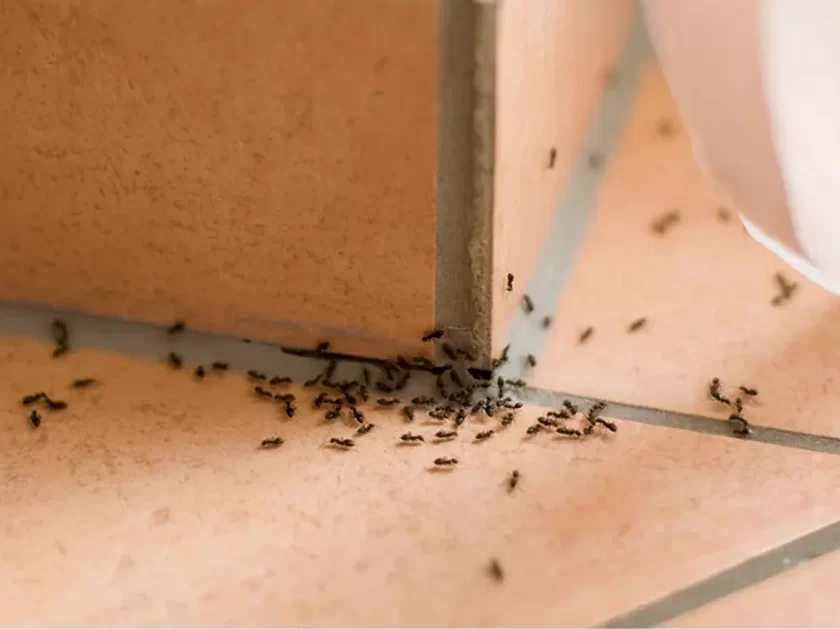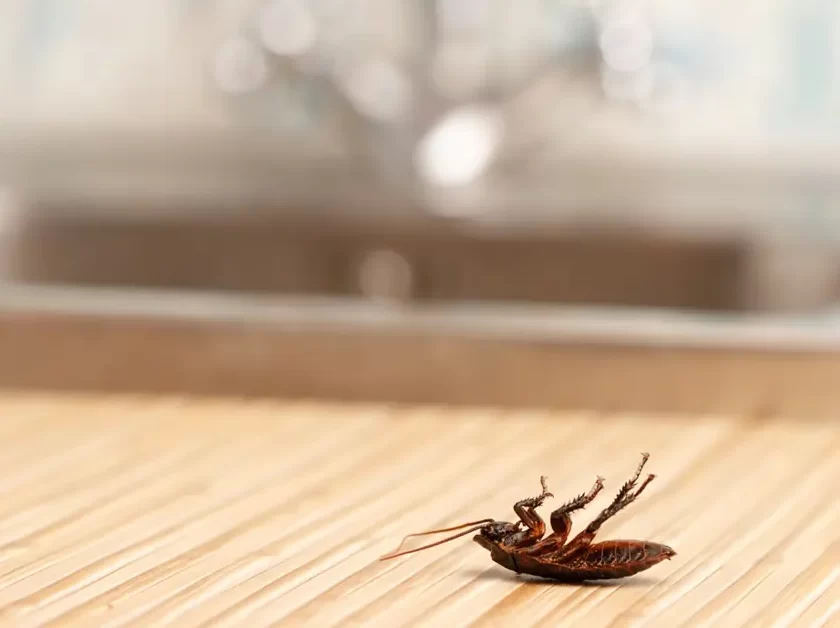Being besieged by insects, rodents and other pests is never fun. Luckily for your health, home and sanity, though, our pest technicians are here to help. Whether you’ve already scheduled your pest control appointment or you’re shopping around for the best team, we know you probably still have a few questions about the pest management process. So let us help!
We’re here to offer the tips and advice you need to feel confident and prepared for your next pest cleaning. Keep reading below for a guide that will help you get ready for your upcoming pest control appointment, as well as quick answers to some of the most frequently asked pest management questions.


Preparing for your pest control treatment
One of the most common questions we get is, “What do I need to do before my appointment?” We’re so glad you asked!
We may have the tools and knowledge necessary to get rid of your pest problem, but the truth is you can make the process much faster and more effective. All pest control services work best with teamwork. Properly preparing your home for treatment not only ensures the work is done as quickly and efficiently as possible. It also helps keep your home safe and decreases the risk of reinfestation. So, what can you do to get ready for your next appointment?
While preparation may vary depending on the type and intensity of your chosen treatment, a general preparation checklist should look like this:
- Thoroughly clean and declutter your house to remove any messes that may interfere with the treatment.
- Scrub all hard floors and vacuum carpets to remove any eggs or visible pests.
- Cut your lawn one to two days before your scheduled appointment.
- Store pet bowls, toys and bedding in an enclosed space and cover all terrariums, aquariums, cages and other pet containers to prevent contamination.
- Store all open food items in plastic containers or plastic wrap. If any food is left out, be sure to dispose of it after the treatment is complete.
- Cover or store any children’s items away from the treatment area.
- Relocate your pets to a safe and comfortable place for the duration of the treatment and for up to three hours after the treatment.
- Ensure all of your windows are closed before the treatment begins.
- Remove any garbage indoors and outdoors.
- Take detailed notes of where you’ve seen pest activity and give them to your technician. This will help ensure they target the right areas.
Some treatments – such as bedbug treatments – may require extra preparation, so it’s always helpful to request a list of instructions from the Good Call team. Additionally, while most treatments will only take a few hours, extreme problems may require you to leave your home for a longer period of time. In these cases, it’s best to have bags packed for each family member.
It may seem a bit daunting, but we promise that doing your part to prepare your home for our team is worth it in the long run.
Seven common pest management questions
There’s one important item that’s not included in the home preparation checklist above: ask questions! We’ve saved you some time by providing answers to six of the most commonly asked questions in the industry.
1. Can I do my own pest control?
Minor pest problems may be safe to take care of on your own. However, it is important to note that most over-the-counter pest products are often less effective and more dangerous than professionally applied products. When you DIY with chemicals, there is always a chance for cross-contamination.
While we recommend letting our team apply chemicals, there are things you can do to prevent pests including keeping your home clean, installing fly screens and other barriers and removing food sources that pests rely on.
2. Are pest control chemicals safe?
In order to be effective, all pest management chemicals are – to some degree – poisonous. However, our targeted treatments are specially designed to maximise the safety of your home and everyone living there. Our staff is thoroughly trained and qualified to properly handle and apply a wide variety of chemicals that are designed to be safe for mammals to help ensure that your home and family are safe.
It is still important to take care during and after treatment as some chemicals used in pest control may cause allergic reactions. If you or someone in the household is allergic to certain chemicals, be sure to let your provider know.
3. When should I call the professionals?
Deciding when to involve professional pest management is completely up to you – although, it’s important to note that the sooner you contact us, the faster your problem will be resolved. We recommend reaching out for professional assistance as soon as you notice any signs of pests, including:
- Property damage
- Droppings or urine
- Physical pest sightings
- Sounds such as scratching or buzzing
- Nests, burrows or other living spaces
- Strange odours

4. What can I expect to see after treatment?
Treatment timelines will vary depending on factors such as the intensity of treatment, the type of pest and the treatment strategy. You can expect to see a noticeable reduction in pests within the first week. If, after two weeks, your pest problem has not been resolved, it’s important to get in touch with our team so we can continue treatment.
5. How often do I need pest control services?
Unless you’re experiencing an infestation, annual pest management treatments may be all you need to keep your home and family safe from dangerous and annoying pests. Because pests vary from season to season, annual treatments are necessary to ensure year-long protection. We do this by eradicating current pests, identifying potential threats, disrupting nesting patterns and putting preventative measures in place to reduce the risk of future infestations.
6. How can I keep my home pest-free?
As with most things, prevention is the best cure. While not guaranteed to eliminate all pest problems, you can make your home less attractive to pests by:
- Maintaining a clean and clutter-free home
- Storing garbage and bins properly
- Fixing leaks to eliminate standing water
- Sealing any holes or cracks around your house
- Maintaining a neat lawn and yard
- Storing food properly
- Scheduling regular pest management appointments
7. What will my landlord/property manager need me to do about pest control?
If the property was pest-free at the beginning of the tenancy, the occupant must ensure that the property is pest-free at the end of the tenancy. We encourage you to check your contract with your landlord or property manager, it may list that a general internal and external pest control treatment or flea treatment is required. The same goes for carpet, if the carpets were cleaned to a certain level at the beginning of the tenancy, the occupant must make sure they are cleaned to the same standard at the end. We can look after your carpet cleaning at the same time as your pest appointment.
